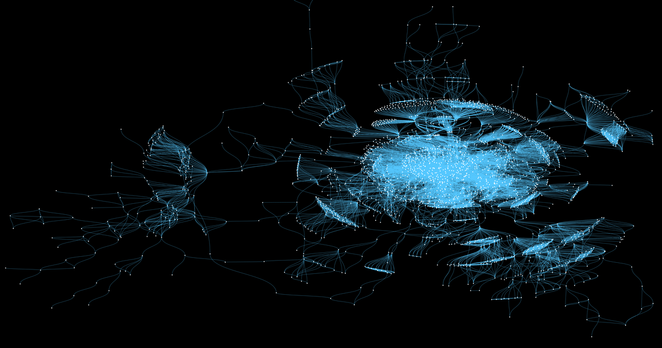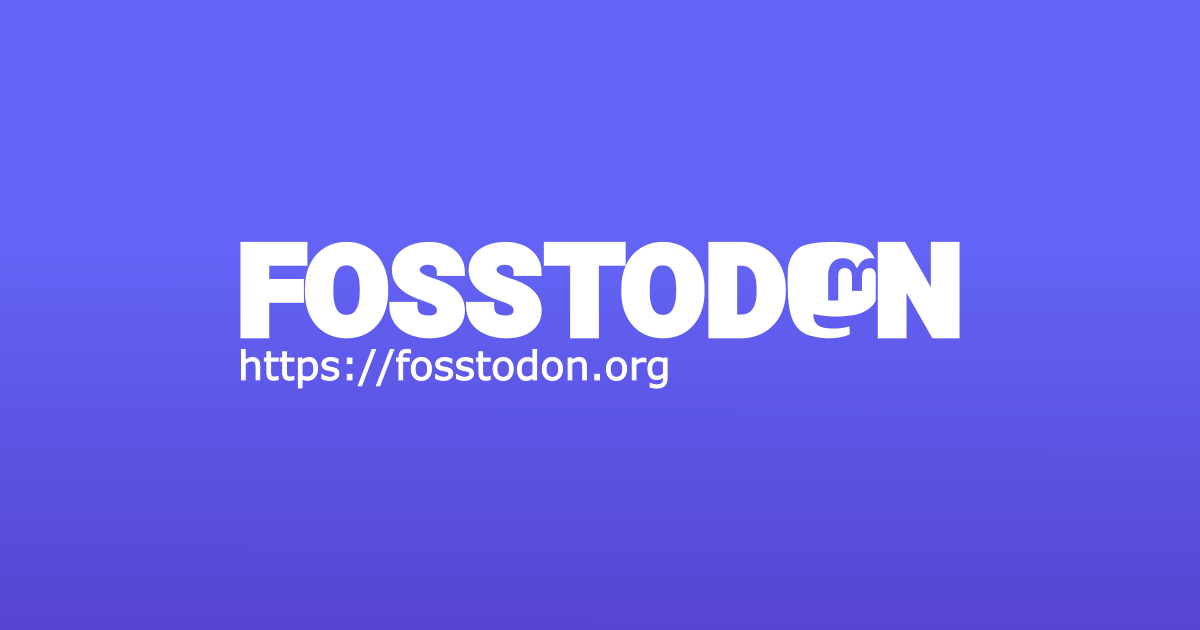My students always roll their eyes when I tell them to use Zenodo. I just hope it ages better than ... this bit.ly → Dropbox chain leading to a deleted file here in a scientific publication.
Recent searches
Search options
#zenodo
Natalia Manola ( @CoARAssessment - Coalition for Advancing Research Assessment OI4RRA WG Co-Chair) will present the core concepts.
@vergoulis (Leader of Subgroup 2) will moderate the conversation, share key insights, and engage the community in discussing the road to implementation.
-Read the full output on #Zenodo: https://zenodo.org/records/15297695
Is #Zenodo ok? I have clicked into maybe 10 different "communities" at random, because I'm looking for an example to show someone who is choosing a platform to deposit some interim research products, and all of them have a message like this:
This could take the form of setting up repositories (#github/ #zenodo) etc that store the prompts used and the output received from the #LLMs. For example, if one were to use a chatbot to develop the plan for a scientific report and/or the first draft, the prompts and the output should be made public as research methods & supplementary material.
Differencing tools could then be automatically deployed to show how the final product changed to the #LLM output that was first received or even ...
This could take the form of setting up repositories (#github/ #zenodo) etc that store the prompts used and the output received from the #LLMs. For example, if one were to use a chatbot to develop the plan for a scientific report and/or the first draft, the prompts and the output should be made public as research methods & supplementary material.
Differencing tools could then be automatically deployed to show how the final product changed to the #LLM output that was first received, or even ...
This could take the form of setting up repositories (#github/ #zenodo) etc that store the prompts used and the output received from the #LLMs. For example, if one were to use a chatbot to develop the plan for a scientific report and/or the first draft, the prompts and the output should be made public as research methods & supplementary material.
Differencing tools could then be automatically deployed to show how the final product changed to the #LLM output that was first received, or even ...
Visuel « Que se passe-t-il sur #Wikipédia en 24h ? » publié sur #Zenodo. J'en ai profité pour ajouter une documentation. https://doi.org/10.5281/zenodo.15236570
Weird facts about Google Scholar (GS):
- GS indexes my personal blog (https://seanfobbe.com)
- GS does not index Zenodo (https://zenodo.org)
- GS picks up Zenodo datasets if they are cited by DOI in regular papers

#Update! #OpenAIREGraph version 10.2.0 is live
- Extended set of inferred RAIDs
- Removal of products withdrawn from #Zenodo
- Updated @crossref,
@ORCID_Org, @datacite, & #PubMed contents
See all what's new in our changelog at https://graph.openaire.eu/changelog
The VINCULUM project has created a community on the #Zenodo platform with a a wide range of items, is already present in the EU #OpenResearch Repository, and has published a set of seven books in open access — available on the #OAPEN platform.
Check it out: https://ihc.fcsh.unl.pt/en/vinculum-open-access/
Can anyone access #Zenodo? According to https://downforeveryoneorjustme.com/zenodo.org it is up, but it only delivers a "403 Forbidden" page for every page.
CC @mfenner
The full student mobility data and Python scripts used to produce the data are openly available in our #Zenodo:
https://zenodo.org/records/14332354
Read more in our blog post: https://blogs.helsinki.fi/digital-geography/2025/03/26/over-2-million-erasmus-student-mobility-flows-across-europe-geocoded-open-data-description-article-out/
Sieht so aus. Puh, das ist (immer) unpassend...
Years of discussions of #GreenOA and #Dissemin, but I had not yet written down the features needed for a mediated deposit tool.
I've now filed a few feature requests for #Zenodo to start with:
* Prefill all metadata about a postprint deposit https://github.com/zenodo/zenodo/issues/2562
* Allow login by email link https://github.com/zenodo/zenodo/issues/2563
* Provide authors with suggestions of articles to deposit https://github.com/zenodo/zenodo/issues/2564
* Prefill deposit form with already-available full-text PDF https://github.com/zenodo/zenodo/issues/2565
You should get in touch with @kfitz
They even have their own  instance and are interacting with #bonfire folks.
instance and are interacting with #bonfire folks.
OK, my list is now
#Zenodo (in use, but I didn't see its potential )
#OpenAlex (in me use )
#kcworks (ready to discover this week )
#Bonfire (waiting for it
#europepmc (will use it more )
#ORCiD (my appologies, I undervalued you)
La newsletter #ScienceOuverte de l'#InstitutPasteur a compilé cette semaine une sélection d'articles autour des #EntrepôtsDeDonnées
#OnVousExplique : Les entrepôts de données
Comment trouver un entrepôt de données dans le domaine biomédical ?
Le répertoire d’entrepôts de données #re3data
Les différences entre plusieurs entrepôts de données généralistes : #RechercheDataGouv, #Zenodo, #Dryad et #Figshare
Déposer des données dans un entrepôt, que doit-on anticiper ? L’exemple de #GEO
Disparition de certains entrepôts de données : quel impact sur l’accès aux #DonnéesDeRecherche ?
https://4682g.r.sp1-brevo.net/mk/mr/sh/OycXxko2a8zXNsWQVbhniEew/_eAVoGIw0pDv
Schonmal was von #DOI (Document Object Identifier) gehört? Ist sowas wie eine ISBN, aber für wissenschaftliche Veröffentlichungen und vereinfacht das korrekte zitieren.
Für Citizen-Science ohne intitutionelle Anbindung bieten sich da drei Platformen an:
Have published an updated (complete) #dataset on #zenodo for the #RSS #efficiency page/paper...
Nous avons comparé plusieurs #EntrepôtsDeDonnées pluridisciplinaires : #RechercheDataGouv, #Zenodo, #Dryad et #Figshare
Au-delà du point commun de simplicité d'utilisation, quelles différences ?
#OpenData #OnVousExplique




